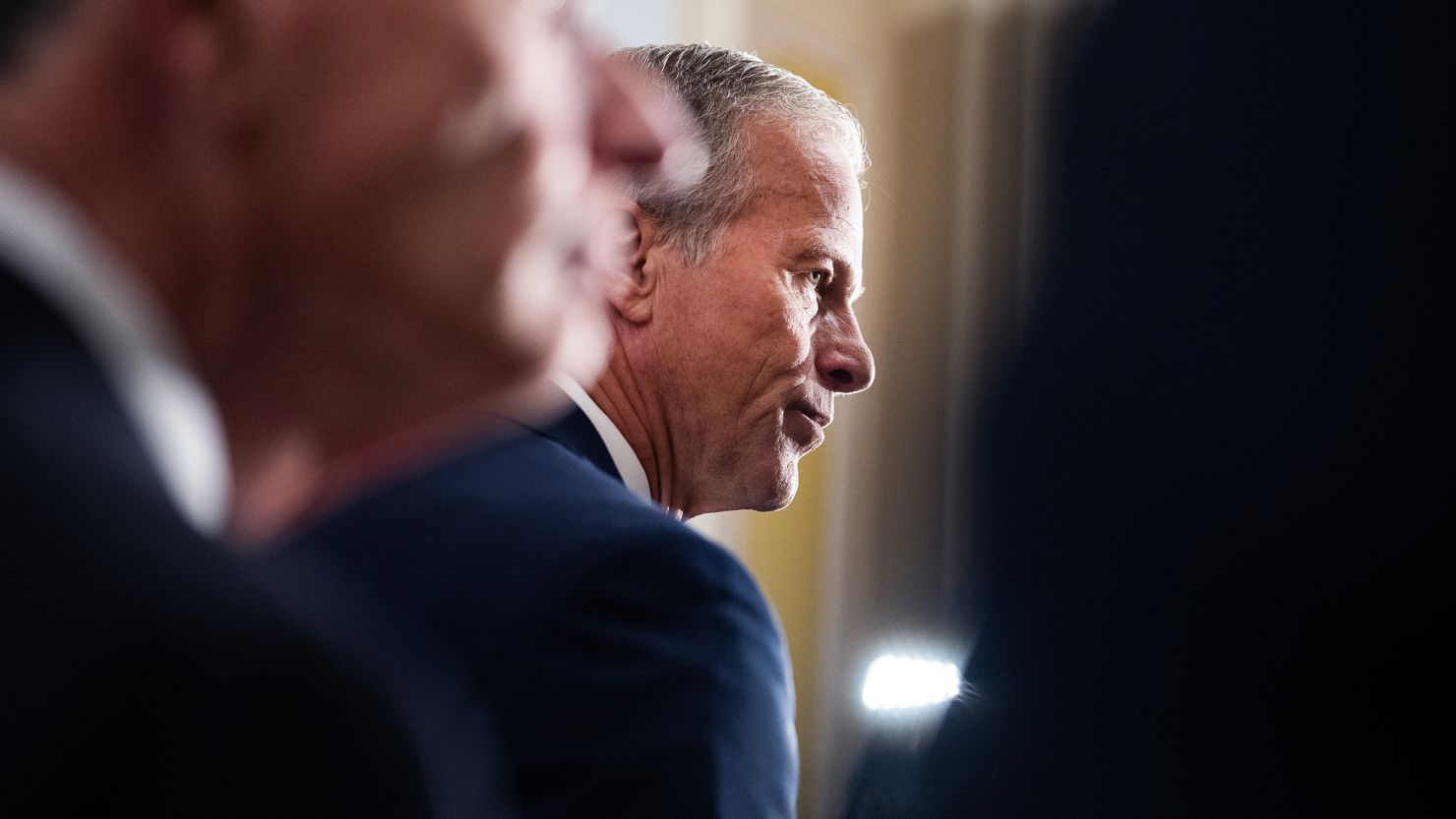A significant political clash has emerged within the Republican Party, as a key Senate leader publicly rebuffed former President Donald Trump’s demand to abandon a long-standing bipartisan tradition regarding judicial nominations. This dispute highlights a fundamental divide over procedural norms versus expedited political appointments.
Senate Majority Leader John Thune explicitly stated his opposition to overturning the “Senate Blue Slip” precedent, a crucial aspect of the judicial confirmation process. This tradition grants home-state senators considerable influence over the approval of U.S. attorney and federal judge nominees, ensuring local perspectives are considered. Thune conveyed a lack of broad interest among his colleagues in disrupting this established practice.
The controversy intensified following former President Donald Trump’s direct appeal to Senator Chuck Grassley, chairman of the Senate Judiciary Committee, via Truth Social. Trump urged Grassley to “step up” and discard the “ridiculous custom,” asserting that Democrats had previously disregarded it, thus justifying a similar move by Republicans to accelerate stalled nominees.
However, Thune countered Trump’s assertion, pointing out that both Democratic and Republican parties have historically utilized the “blue slip” to block nominees, underscoring its bipartisan nature. His remarks suggested a pragmatic approach, prioritizing progress on the current list of judicial nominations while leaving the door open for future procedural reviews if Democratic obstruction persists. This reflects a key aspect of GOP Politics.
Senator Chuck Grassley himself expressed surprise and disappointment regarding Trump’s public criticism. During a Judiciary Committee meeting, he lamented the former president’s “personal insults” and highlighted the practical importance of the “Senate Blue Slip” for “Real America,” explaining how it impacts the selection of district judges and U.S. attorneys who serve local communities.
Other prominent Republican senators quickly rallied behind Grassley and Thune, reinforcing the institutional loyalty to the “Senate tradition” of the blue slip. Senate Majority Whip John Barrasso voiced his support for the chairman, while Senator John Kennedy urged Trump to “back off” the issue, characterizing it as a “needless fight” that undermines effective local judicial selection.
Senator Kennedy further elaborated on the rationale behind the blue slip, emphasizing that home-state senators are uniquely positioned to identify suitable legal professionals from their communities who meet “community standards.” This perspective underscores the value of local insight in shaping the judiciary, contrasting with a purely partisan appointment process. This is a core element of Congressional Procedure.
Senator John Cornyn, facing an upcoming reelection, also aligned with Grassley and Thune, signaling a broader consensus among key Republican senators to maintain the current procedural norms. The collective sentiment among these leaders suggests a firm resistance to unilateral changes that could destabilize the judicial nominations process, despite the former president’s strong urgings for a more aggressive approach from Donald Trump.






Leave a Reply